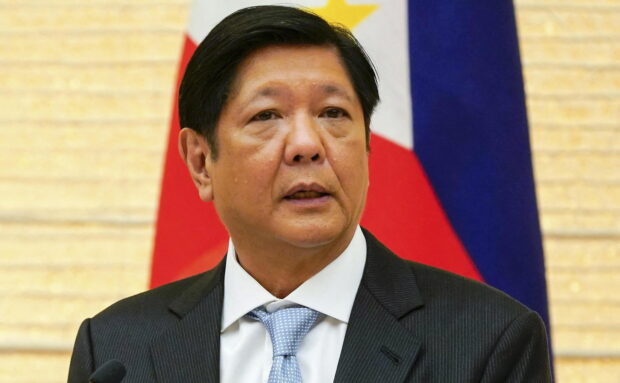MANILA, Philippines — The Philippines and Vietnam are expected to sign an agreement on maritime cooperation during the visit of President Ferdinand Marcos Jr. to Hanoi next week, a move that is seen to build a united front between countries locked in territorial disputes with Beijing over parts of the South China Sea.
The memorandum of understanding (MOU) on maritime cooperation between the coast guards of the Philippines and Vietnam seeks “to strengthen understanding, mutual trust and confidence of cooperation… towards the promotion, preservation, and protection of their mutual interests in the Southeast Asian region,” according to a copy of the final draft of the MOU seen by the Inquirer.
Such an agreement will allow both countries to better manage conflicts in the contested waters and conduct activities “in accordance with principles of international law, the national laws of each party, and international conventions to which both Vietnam and Philippines are parties.”
President Marcos will visit Vietnam next week, his second overseas trip of the year, as the two nations seek to strengthen their growing strategic partnership.
“The Philippines and Vietnam share a common aspiration for a peaceful and stable region. Both countries have a history of cooperation on matters involving the South China Sea, and there is an opportunity to strengthen this strategic relationship to the next level,” retired Navy Adm. Rommel Jude Ong, a professor at the Ateneo School of Government, told the Inquirer.
The Philippines has been widening its network of alliances with like-minded countries amid tensions with China, a move criticized by Beijing.
The Philippines and Vietnam are also looking to strengthen cooperation in other fields such as agriculture, culture, education, environment, information sharing, and people-to-people exchanges.
In agriculture, the Philippines is expected to sign a rice deal with Vietnam during the President’s visit.
According to Agriculture Secretary Francisco Tiu Laurel Jr., the deal “basically guarantees that they will be supplying us rice continuously even in calamity situations.”
Element of stability
During the farewell call of the outgoing Vietnamese Ambassador to the Philippines Hoang Huy Chung in August last year, Marcos underscored the need for the two countries to cooperate in the wake of the escalating aggression by Beijing in the South China Sea.
Marcos said a maritime agreement with Hanoi would be a “very big step” for both countries and would “bring an element of stability to the problems we are now seeing in the South China Sea.”
He said then that the solid ties of both countries would make it easier for them to face “common challenges” in dealing with “territorial disputes in the South China Sea.”
Such a bilateral agreement could also serve as the basis of a united front with other members of the Association of Southeast Asian Nations, which has been discussing with Beijing a code of conduct deemed crucial in easing tensions in the South China Sea.
President Marcos had earlier expressed his frustration at the slow pace of progress in the talks between the regional bloc and China.
Both the Philippines and Vietnam are among the claimants in the South China Sea, along with Brunei, Malaysia, and Taiwan. China, however, claims nearly the entire strategic waterway.
A 2016 ruling by an arbitration tribunal in The Hague rejected China’s expansive claims in the South China Sea, but Beijing refuses to acknowledge the decision.
Honor talks with action
At the Bagong Pilipinas Ngayon public briefing on Monday, National Security Council (NSC) Assistant Secretary and spokesperson Jonathan Malaya said China should make good on its promise to improve bilateral relations with the Philippines and lessen the tensions in the West Philippine Sea.
Malaya issued the reminder after videos circulating on social media showed China Coast Guard personnel harassing Filipino fishermen in Bajo de Masinloc off Zambales province recently.
The security official noted that the incident happened just as Beijing and Manila held a Bilateral Consultation Mechanism (BCM) discussion in Shanghai last week.
Chinese Ambassador to the Philippines Huang Xilian said that the two countries both committed to improve their maritime communication and hold “friendly consultation” in addressing their maritime dispute.
“We were hoping that the West Philippine Sea will be peaceful this 2024. But we are alarmed over this latest incident… We condemn this latest provocative action on the part of the China Coast Guard against our fishermen,” Malaya said at the televised program.
“Since they will soon celebrate the Chinese New Year, we ask China to honor the talks between the governments of the Philippines and China with actions on the ground,” he said.
Besides, the NSC spokesperson said, both Manila and Beijing would not benefit from having strained diplomatic relations.
“Moving forward, I hope the discussions [during the BCM] will be implemented,” Malaya said.
